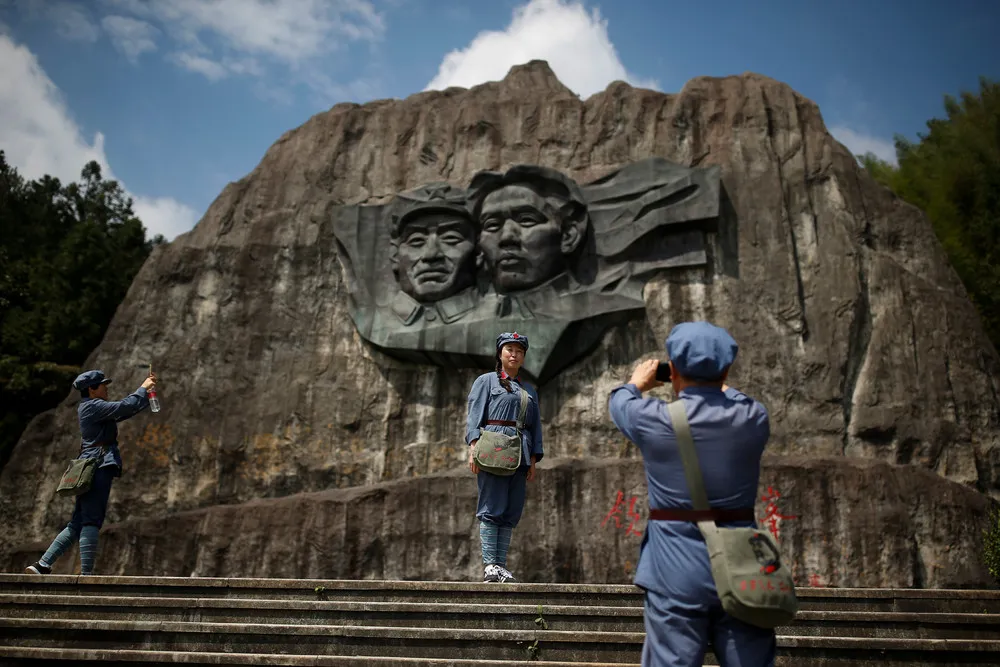|
Participants dressed in replica red army uniforms take pictures at a base relief showing former Chinese communist leaders Mao Zedong and Zhu De at a historic site of the Long March in the mountains outside Jinggangshan, Jiangxi province, China, September 14, 2017. Deep in the mountains of Jinggangshan in the southeastern province of Jiangxi, a classroom of bank tellers participates in an ideological boot camp that plays into Chinese President Xi Jinping's drive to further consolidate his grip on power. Jinggangshan is considered the “cradle of the Chinese revolution” and, in 1927, was the official birthplace of the Red Army, now known as the People's Liberation Army of China.
Reliving the revolution, students walk the route of the Long March, a series of retreats by the Red Army, led by Mao, to evade the pursuing Nationalist forces of Chiang Kai-shek between 1934 and 1935. “I can feel the spirit of the revolution”, said Wang Pingzhu, a 32-year old garment company employee from the southern province of Fujian. “As soon as I got here I could see it along the road. I could imagine the scene at the time”, she said. During the three-day course, participants visit historical sites, pledging allegiance to the Communist Party and Xi's dream of the “great rejuvenation of the Chinese nation” ahead of a key party congress next month. “I think the Communist Party emphasises this sort of education, to try to control the thinking of party members and at the same time control a portion of the population who still have faith in the party, so they can support the leadership”, said Zhang Lifan, an independent political commentator. In reviving Maoism and courting powerful conservative elements in the party, Xi seeks to remind people that China's dramatic ascent to become the world's second-largest economy was not simply a case of ditching Marx for markets. The “Red Culture” training camp for private and public sector workers aims to rekindle faith in the founding principles of the party and drown out critics who say it has lost its ideological soul after more than three decades of free-market reforms. Its programme fits with Xi's push for patriotic education and ideological control of the people, an agenda he has promoted since coming to power in 2012 and is expected to further build on in October's five-yearly leadership reshuffle. “Under the leadership of President Xi, ideological belief education has set off a new wave in China”, said Zuo Jianxing, a forestry official in the northern province of Inner Mongolia. Harking back to Mao's time still resonates with some of the population, 41 years after his death. But the fear is that the younger generation of Chinese may be too preoccupied with the fruits of capitalism to care much about Red Culture. That may explain why, five years after taking power, Xi continues to espouse old school Maoism as a way to reassert the primacy of the party. “If the Communist Party loses power, they are finished”, said political commentator Zhang. (Photo by Thomas Peter/Reuters)
|

